Is Brussels in Belgium safe to visit in 2024?
If you’re planning a trip to Brussels, one of the first questions that might come to mind is: “Is Brussels safe?”
Added by Rachel in February 2024: This is especially the case after a terrorist attack happened in October 2023, when an Islamist gunman shot and killed two Swedish football supporters.
It’s understandable to do your research and make sure you’re picking a destination that’s not only exciting and vibrant but also safe for your upcoming adventure.
Well, you’re in luck! This blog post will give you the lowdown on the safety of Brussels, the capital of Belgium. Brussels has a lot to offer. We’ll explore the city’s safety factors so you can confidently plan your trip without any worries.
Note: This is a guest post by Josh Band of A Backpacker’s World.
Disclosure: This article contains affiliate links. If you click on one and make a purchase, I (Rachel) will receive a small commission.
So, let’s dive in and find out if Brussels is the perfect destination for your next city getaway!
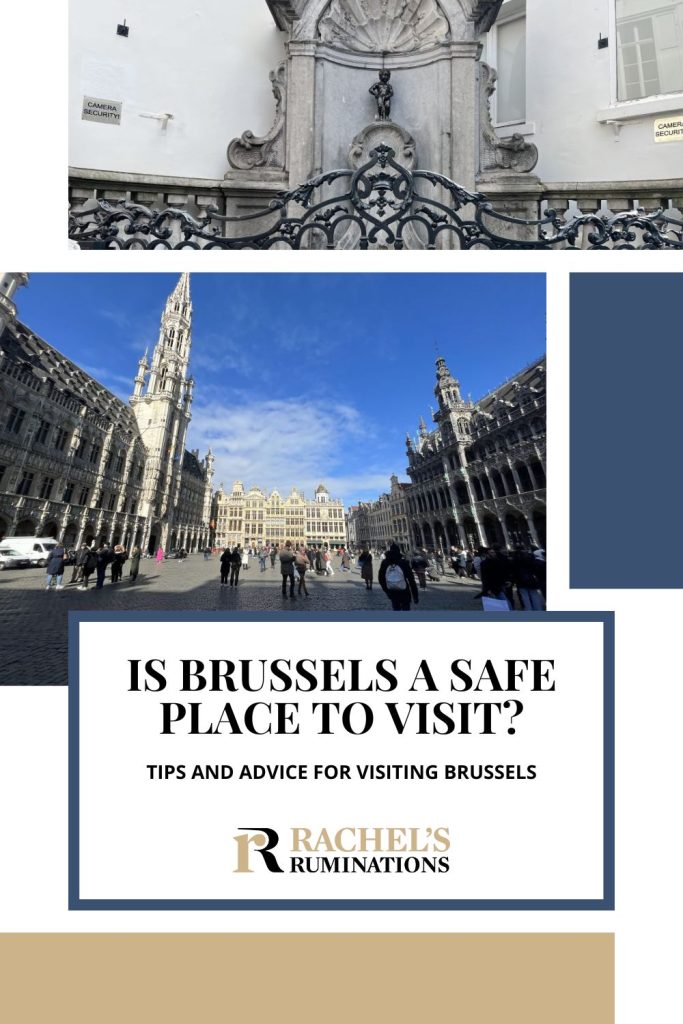
Is Brussels safe?
First things first, let’s set the record straight: as European cities go, Brussels is indeed a safe destination for any kind of traveller. The city has a safe feeling and atmosphere to it, and Brussels has a relatively low crime rate compared to other European capitals. The most common crimes, according to Expatica, are petty thefts like purse-snatching and pickpocketing. Fortunately, these are crimes you can protect yourself from.
Added by Rachel in February 2024: There have been other terrorist attacks over the years in Brussels: four people in the Jewish Museum were killed in 2014, and 32 died at the hand of three suicide bombers in March 2016, while 300 were injured. Since there are attacks from time to time in many cities in Europe and the US, I don’t think this makes Brussels any more dangerous than anywhere else. To some extent, we just have to live with the relatively minor risk every time we leave our homes. I choose to take that risk.
Brussels also has a well-developed infrastructure, efficient public transportation, and a strong police presence, which all contribute to its overall safety.
The safety in Copenhagen, Rome, Paris, Amsterdam or any major European cities is pretty high, but Brussels is exceptionally safe.
One of the main reasons why Brussels is considered safe is due to its welcoming and diverse population. Belgians are known for their friendly and open nature, and you’ll find a melting pot of cultures and communities in Brussels. The city is home to various international organizations, making it a really popular spot for expats, adding to the variety of nationalities you can find in Brussels. This diversity creates a unique and inclusive atmosphere that promotes safety and tolerance.
To demonstrate how safe Brussels is: the European Parliament and the European Commission are based in Brussels part of the time. It wouldn’t make sense for them to have these important governing bodies in a city that was unsafe, prone to riots, etc., would it? So if it’s safe enough for politicians, it’s fair to say that Brussels is indeed safe. Side note: Visiting the European Parliament is one of the top reasons why Brussels is worth visiting.
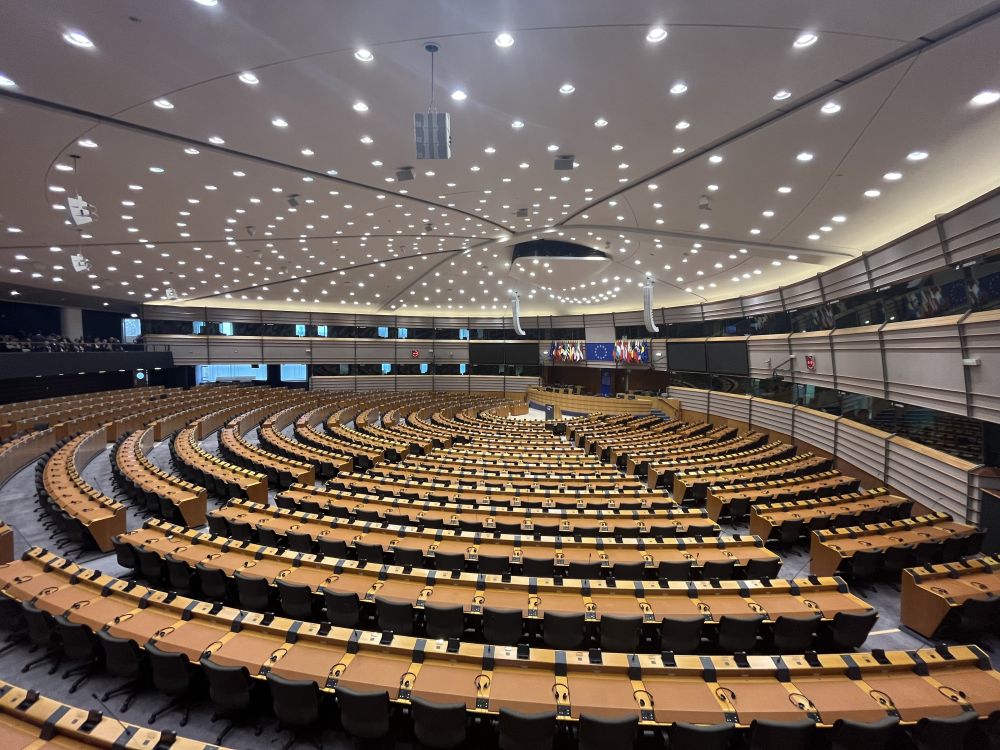
Another aspect that adds to the safety of Brussels is the city’s efficient and reliable public transportation system. You can easily get around using the extensive network of buses, trams, and metros, which are well-maintained and regularly monitored. Compare this to London’s safety, for example, where transport isn’t so efficient, and you’ll realise that transport is a big factor adding to the safety of Brussels.
Of course, as in any city’s public transportation system, this doesn’t mean you can completely let your guard down. When you’re in one of the metro stations, wait near the ticket booth and near other passengers, and away from the edge of the tracks. Watch out for pickpockets if it’s crowded, keeping any belongings in front of you. Taxis are also a safe and convenient option, with licensed taxis displaying a yellow and blue emblem on the roof. As always, only use authorized transportation services to ensure your safety.
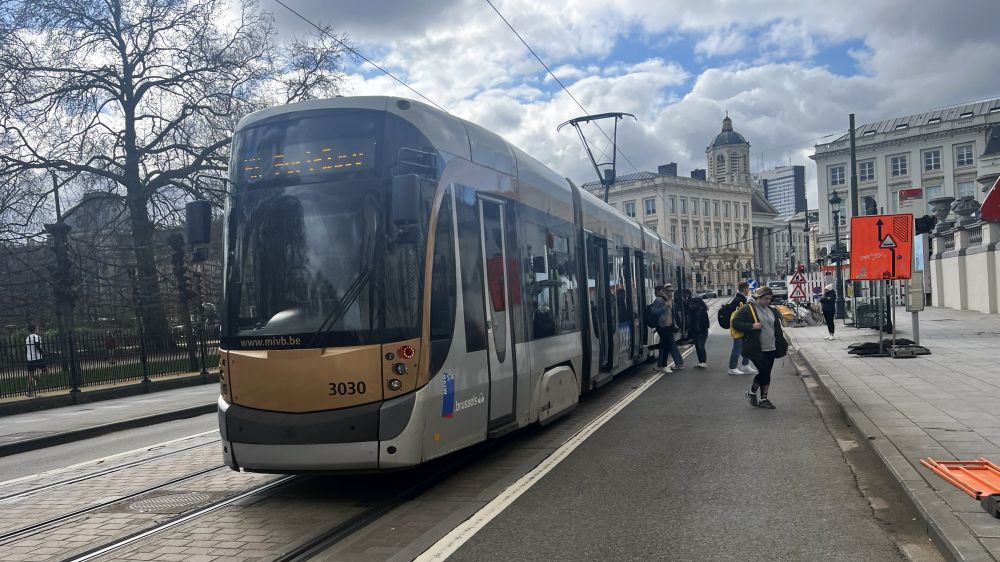
Avoiding petty crime in the capital city of Belgium
Regardless of where you are in the world, it’s always recommended to take standard safety precautions to avoid petty crime. This means you should do all the same things you’d do in public areas in your own city. Keep an eye on your belongings, especially in crowded areas, and be cautious of pickpocketing, just like in any other major city. Never leave your valuables unattended. Use lockers or hotel safes to store your belongings. Additionally, be mindful of your surroundings, particularly at night, and stick to well-lit and populated areas in the city center in order to avoid both petty and violent crime.
If you’re staying in Brussels long-term, you may be wondering about healthcare. Brussels has a robust healthcare system with modern facilities and well-trained medical professionals. Pharmacies are widely available throughout the city, and English is commonly spoken, making it easy to communicate and seek assistance if needed.
To summarise, the answer to “Is Brussels safe?” is yes, without a doubt. With its friendly population, efficient public transportation, and low crime rate, you can explore the city with confidence in your personal safety.
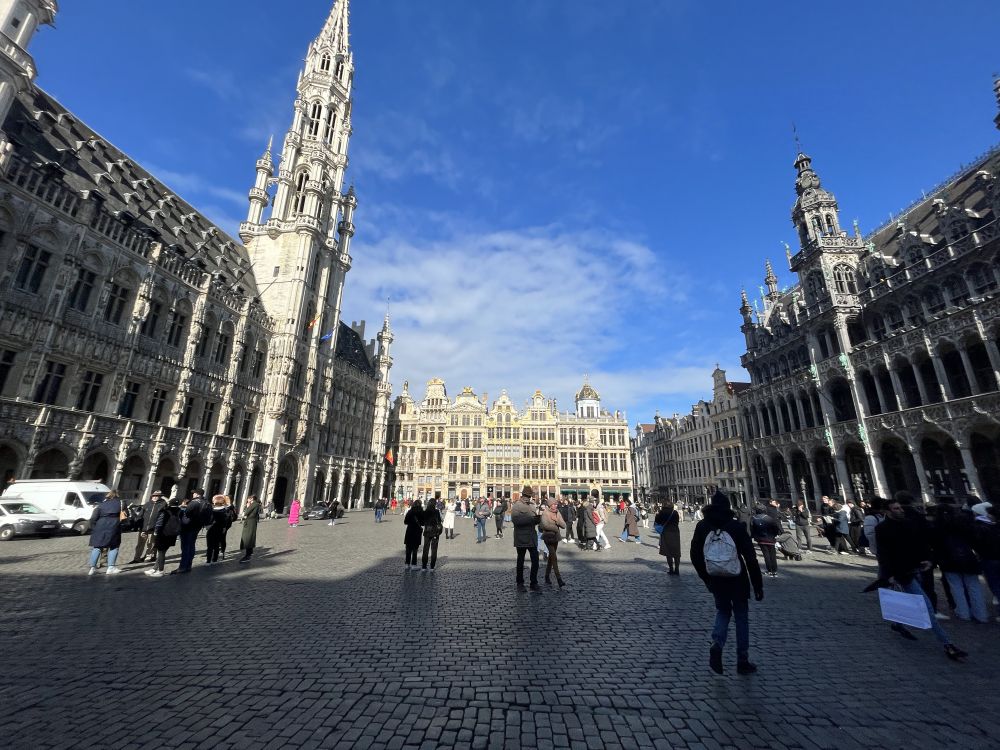
Is the city of Brussels safe at night?
When planning a trip to Brussels, you might also be wondering about the city’s nightlife and safety after the sun sets. Is Brussels safe at night? This question is possibly even more common than whether Brussels is safe in general.
Brussels is a city that truly comes alive at night: its vibrant nightlife and bustling streets keep the city going well into the early hours of the morning. Cosy cafes, trendy bars, world-class restaurants and exciting entertainment options mean that there’s something for everyone to enjoy. Or if you prefer to go sightseeing at night, Brussels is the place to be too! The city’s historic landmarks, such as the Grand-Place and Atomium, are often beautifully illuminated, creating a magical ambiance that’s worth staying up late to experience after dusk, particularly if you have more than enough days in Brussels.
When it comes to safety, Brussels is generally considered safe at night, especially in the tourist areas in the city centre, where all the best things to see are. The Belgian authorities take pride in their efficient police force and security measures, which contribute to maintaining a safe environment for both locals and visitors alike, no matter the time of the day. However, it is naturally going to feel less safe at night for you as it is dark and there are fewer people around, but fear not, the city remains safe during the night. Again, follow the same safety precautions you would at home: stay near other people, in well-lit areas, and leave valuables at home.
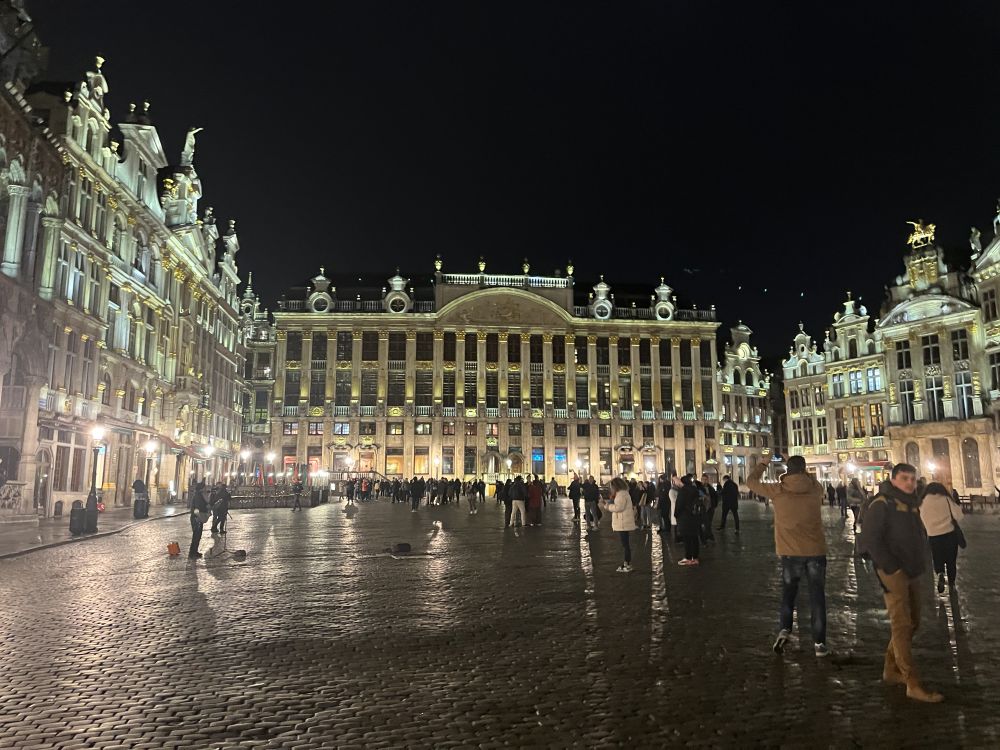
Is Brussels safe for solo travel?
Brussels is a city that offers a plethora of attractions and experiences for solo travellers to enjoy: shop (or window-shop!) on the Rue Neuve, a pedestrian street, or on the very upscale Avenue Louise. Eat French fries – the Belgians are purported to make the very best – and drink some excellent Belgian beer. Admire the gorgeous historical buildings on La Grand Place or tour the Royal Palace or the Atomium. Check out the funny little statue called Manneken Pis. Or stroll the beautiful Parc de Bruxelles, also called the Royal Park. The rich history, culture, and friendly locals make it an exciting destination to explore on your own.
You are no less safe on your own than in a group, as Brussels is such a safe place that you should have no worries sightseeing alone. Of course, be on guard a little more when you’re by yourself, be aware of your surroundings, and just stay alert really. If you’re looking for people to socialize with, there are lots of great hostels to stay in the city where you’ll find other solo travelers. They’re easy on the budget too.
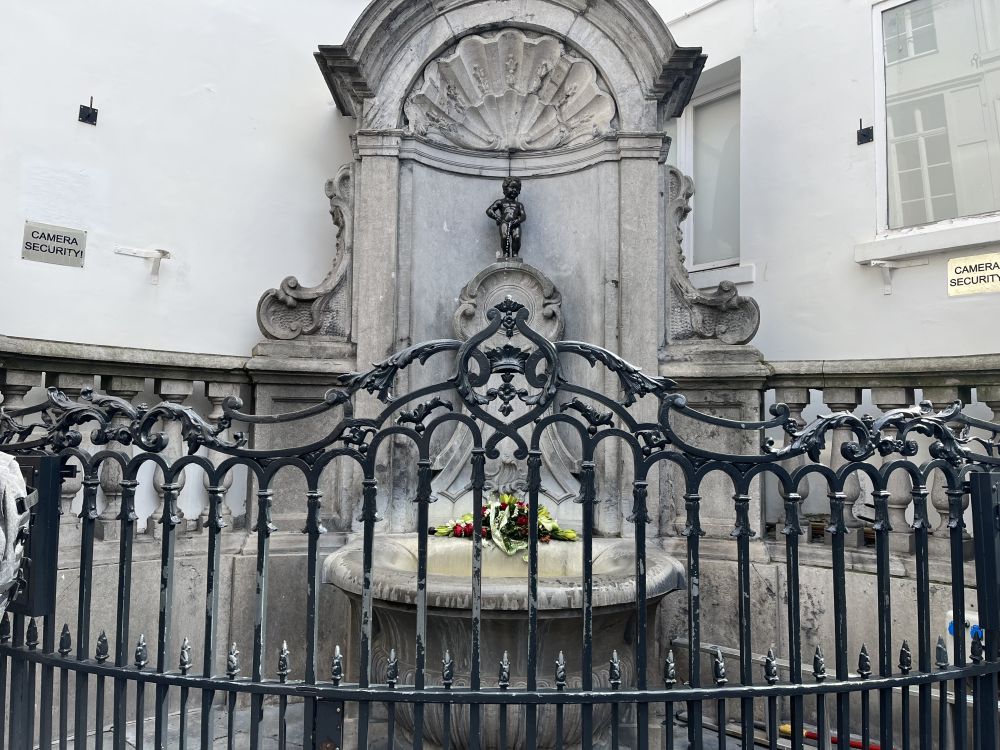
Is Brussels safe for females?
It’s sad that this question even needs to be asked in our world, but unfortunately, it’s a necessary question to ask. Thankfully, the answer to “Is Brussels safe for females?” is once again yes.
One of the highlights of travelling as a female in Brussels is its inclusive and progressive atmosphere. Belgium is known for its emphasis on gender equality, and women are treated with respect and equality in most areas of life. Female travellers can feel comfortable and confident in engaging with the locals and navigating the city’s diverse neighbourhoods.
As already stated above, however, this doesn’t mean you should drop the commonsense rules you usually follow at home. The best areas to be in are places where there are plenty of people around. Trust your instincts, and if you feel uncomfortable, get out of the situation by, for example, calling a cab or ducking into a crowded shop. Just like at home, never leave drinks unattended, and don’t get drunk, since that common sense that normally helps you may be hard to access if you’re drunk.
Street harassment and catcalling are illegal, but still may happen sometimes. If a police officer happens to be nearby, report it. Otherwise, ignore it and keep walking. Engaging in an argument can escalate the situation.
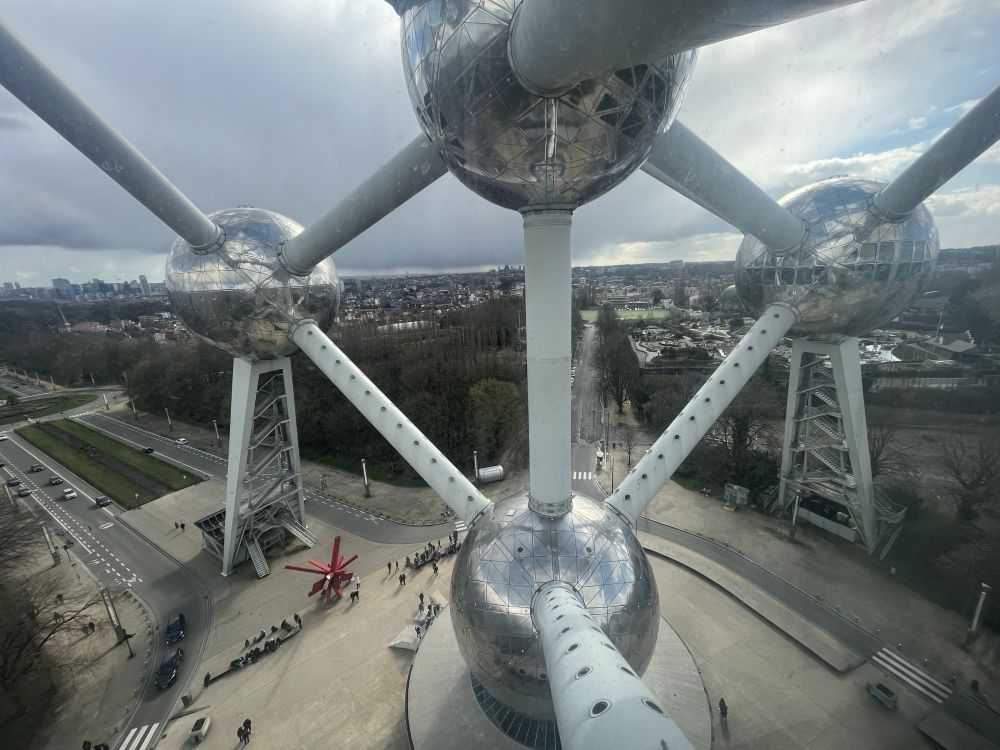
How to stay safe in Brussels
Even though Brussels is an extremely safe city, there are some things you can do to ensure your safety. Most of these should be common sense, but there’s never any harm in repetition when it comes to personal safety. So here are some top tips for keeping yourself safe in Brussels or, for that matter, any big city:
1. Be mindful of your surroundings.
When exploring Brussels, it’s important to be aware of your surroundings, especially in less crowded or unfamiliar areas. Avoid poorly lit or deserted areas, and always trust your instincts. In crowded public places like train stations, markets, and tourist attractions, pay attention to the people around you and stay alert. As an example, probably the most famous attraction in Brussels is Manneken Pis, a fountain with a small figure of a naked child peeing water. Popular tourist sites like this are more likely to attract petty criminals because the tourists have their backs to the street and are focused away from their belongings.
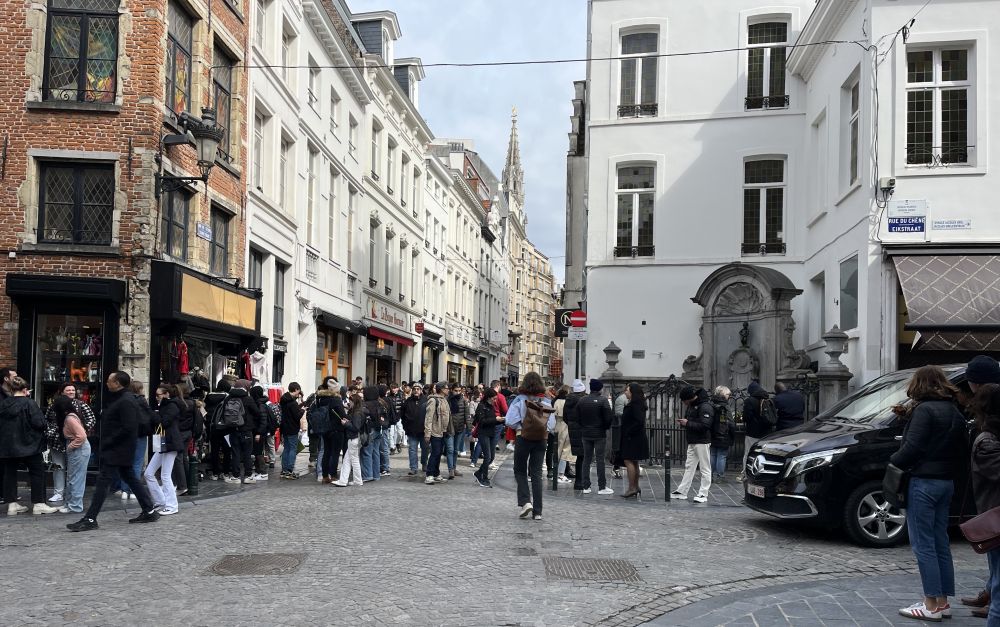
2. Be especially careful in train stations.
According to Expatica, “the North Station (Noordstation or Gare du Nord), Central Station (Centraal Station or Gare Central); and the South Station (Zuidstation or Gare du Midi) are particularly notable areas where pickpocketing and snatch crimes occur frequently.” Hang on tight to your phone and bags.
3. Use authorized transportation services.
Brussels has a well-connected public transportation system, including buses, trams, and metros, which makes it easy to get around. However, it’s important to use authorized transportation services, such as official taxis or reputable ride-sharing apps, and avoid using unlicensed or unmarked vehicles.
4. Secure your belongings.
As with any other city, it’s important to keep your belongings secure in Brussels. Use a money belt or a concealed pouch to carry your valuables, and avoid displaying expensive jewellery or flashy items. Be cautious with your belongings in crowded places (like the train stations mentioned above) and keep your bags zipped and in sight at all times. If you carry a bag, it’s a good idea to wear it across your chest rather than hanging on one shoulder. If you carry a backpack, switch it to the front when you’re navigating a crowd or when you’re on public transportation during rush hour.
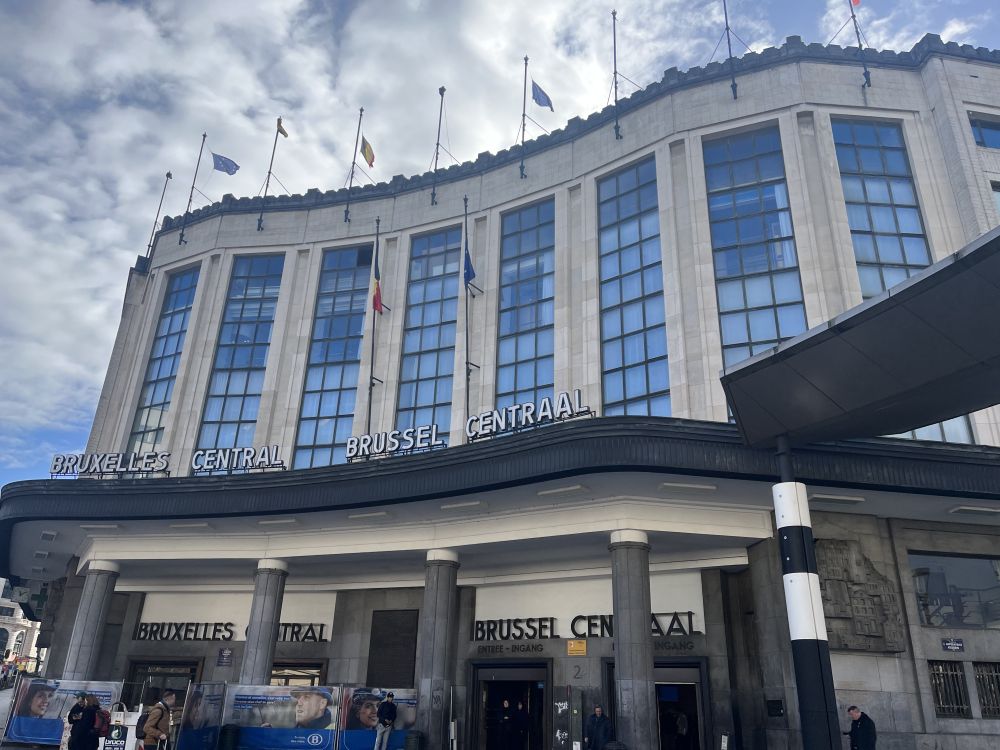
5. Choose reputable accommodations.
Brussels offers a variety of safe and reputable accommodations, including hotels, hostels, and guesthouses. Research and choose reputable establishments that prioritize guest safety, and opt for well-lit accommodations with 24-hour reception and security measures such as surveillance cameras. Make sure to read the reviews of any hotel you’re considering booking.
Book your accommodations here.
6. Stay connected.
It’s important to stay connected with someone you trust while travelling in Brussels. Inform a friend or family member of your whereabouts and plans, and check in with them regularly. Use an app on your phone to allow someone you trust to track your location – which will also allow you to track your phone if it gets stolen or lost. Keep important contact information, including the embassy or consulate, with you in case of emergencies.
Use an Airalo e-SIM card to stay connected.
7. Know where your travel documents are.
There’s some debate over where you should keep your passport. Some would argue that the best place is to keep it with you, preferably in a money belt or a passport-sized bag around your neck and under your clothes. Others swear by locking it in a hotel safe, but if you do that, make sure to remember to take it with you when you move on! Keep a paper copy of your passport as well – it’ll help you if you have to get an emergency passport at the embassy because you’ve lost yours.
8. Avoid overindulgence.
While Brussels is famous for its delicious cuisine and world-famous beer, it’s important to drink responsibly and avoid overindulgence. Excessive alcohol consumption can impair judgment and make you more vulnerable to safety risks. Always be aware of your limits and drink responsibly.
9. Get travel insurance.
While this won’t keep you safe from crime, it can help you to recover if you do become a victim. Depending on the insurance plan you choose, it may cover the expenses you would incur for replacing a stolen passport, phone, etc. Also if you are physically hurt, travel insurance will pay some or all of your medical expenses. Things you bought with your credit card are often insured by your credit card company – read the small print before you go to see what’s covered.
Also read about War graves in Belgium and The Liberation Route of WWII battlefields.
Is Brussels safe: Conclusion
So, is Brussels safe for travellers? Yes!
Just like most major cities, Brussels has its share of precautions to keep in mind, such as being mindful of your belongings and avoiding risky areas at night. However, with its friendly locals, efficient public transportation, and welcoming atmosphere, Brussels is generally considered a safe destination for tourists. As long as you exercise common sense and follow basic safety guidelines, you can confidently explore the city and create unforgettable memories.
So pack your bags, get ready to savour the local delights, and immerse yourself in the vibrant culture of Brussels – a city that’s ready to welcome you with open arms!
FAQ: IS BRUSSELS SAFE?
Is Brussels safer than Paris?
While both Brussels and Paris are generally safe for tourists, Brussels has a reputation for being a relatively safe city with a lower crime rate compared to Paris. However, it’s always important to exercise caution, stay aware of your surroundings, and take commonsense precautions regardless of your destination.
What crimes are most common in Brussels?
Petty crime like pickpocketing and other thefts are most common in Brussels.
How can I keep myself safe in Brussels?
Follow the same rules you would normally follow in any big city, with additional attention to knowing where your travel documents are at all times.
Is catcalling and other harassment a problem in Brussels?
It can be, depending on the neighborhood, though in the places where tourists tend to be it doesn’t happen so much. As you would when you’re at home, just ignore: either don’t respond or say “No” loudly and keep walking. Since verbal or physical harassment is now illegal, it doesn’t happen as much as it used to. If a police officer happens to be nearby, point out the harasser to them.
Is Brussels safe in terms of terrorism?
As with any major city, Brussels has experienced incidents related to terrorism in the past, most notably at the airport in 2016. However, the city has implemented heightened security measures and remains vigilant in ensuring the safety of its residents and visitors. It’s always wise to stay updated on travel advisories and follow any security protocols in place. You can find the travel advisories on the website of the U.S. Department of State.
How safe is Brussels?
Brussels is considered a very safe destination for visitors, apart from some incidences of pickpocketing. Overall, Brussels has a welcoming and friendly atmosphere, and with basic safety measures, you can enjoy your trip without any major concerns. It makes for a really nice city break.
My travel recommendations
Planning travel
- Skyscanner is where I always start my flight searches.
- Booking.com is the company I use most for finding accommodations. If you prefer, Expedia offers more or less the same.
- Discover Cars offers an easy way to compare prices from all of the major car-rental companies in one place.
- Use Viator or GetYourGuide to find walking tours, day tours, airport pickups, city cards, tickets and whatever else you need at your destination.
- Bookmundi is great when you’re looking for a longer tour of a few days to a few weeks, private or with a group, pretty much anywhere in the world. Lots of different tour companies list their tours here, so you can comparison shop.
- GetTransfer is the place to book your airport-to-hotel transfers (and vice-versa). It’s so reassuring to have this all set up and paid for ahead of time, rather than having to make decisions after a long, tiring flight!
- Buy a GoCity Pass when you’re planning to do a lot of sightseeing on a city trip. It can save you a lot on admissions to museums and other attractions in big cities like New York and Amsterdam.
Other travel-related items
- It’s really awkward to have to rely on WIFI when you travel overseas. I’ve tried several e-sim cards, and GigSky’s e-sim was the one that was easiest to activate and use. You buy it through their app and activate it when you need it. Use the code RACHEL10 to get a 10% discount!
- Another option I just recently tried for the first time is a portable wifi modem by WifiCandy. It supports up to 8 devices and you just carry it along in your pocket or bag! If you’re traveling with a family or group, it might end up cheaper to use than an e-sim. Use the code RACHELSRUMINATIONS for a 10% discount.
- I’m a fan of SCOTTeVEST’s jackets and vests because when I wear one, I don’t have to carry a handbag. I feel like all my stuff is safer when I travel because it’s in inside pockets close to my body.
- I use ExpressVPN on my phone and laptop when I travel. It keeps me safe from hackers when I use public or hotel wifi.
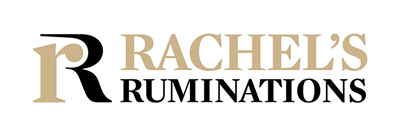

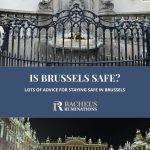
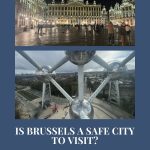
Belgians are known for their open and friendly nature? That’s hilarious! I’ve lived here for over 30 years and consider myself lucky to be treated with basic politeness.
Everyone, and women especially, should be extremely careful in train stations, especially Midi. Crime is rife there. Place Rogier and rue Neuve can also be dodgy, especially after dark.